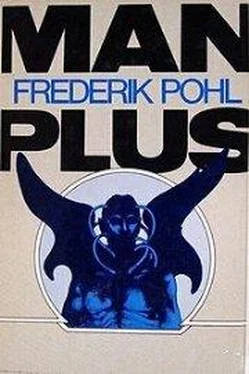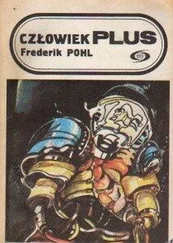“That’s fine.” She applauded. “Now make a G. Ring finger on the third fret of the high E string — there. First finger on the second fret of the A. Middle finger on the third fret of the low E.” She guided his hands. “Now hit it.”
He strummed and looked up at her. “Hey,” he said. “Nice.” She grinned and corrected him. “Not nice. Perfect. Now, this is a C. First finger on the second fret of the B string, middle finger there, ring finger there… Right. And this is a D chord: first and middle finger on the G and E strings, there, ring finger one fret lower on the B… Perfect again. Now give me a G.” To his surprise, Roger strummed a perfect G.
She smiled. “See? Brad was right. Once you know a chord, you know it; the 3070 remembers it for you. All you have to do is think ‘G chord,’ and your fingers do it. You are now,” she said in mock sorrow, “about three months ahead of where I was the first time I tried to play the guitar.”
“That’s pretty nice,” Roger said, trying all three chords, one after another.
“That’s only the beginning. Now strum a four-beat, you know, dum, dum, dum, dum. With a G chord—” She listened, then nodded. “Fine. Now do it like this: G, G, G, G, G, G, G, G, C, C, G, G, G, G, G, G… Fine. Now again, only this time after the C, C do D, D, D, D, D, D… Fine again. Now do them both, one after the other—”
He played, and she sang with him: “ ‘Kumbaya, my lord. Kumbaya! Kumbaya, my lord. Kumbaya—’ ”
“Hey!” Roger cried, delighted.
She shook her head in mock dismay. “Three minutes from the time you pick up the guitar, and you’re already an accompanist. Here, I brought you a chord book and some simple pieces. By the time I get back, you should be playing all of them, and I’ll start you on finger-plucking, sliding and hammering.”
She showed him how to read the tabulature for each chord and left him happily puzzling out the first six modulations of the F.
Outside his room she paused to take out her contacts, rubbed her eyes and marched to the office of the director. Scanyon’s secretary waved her in.
“He’s happy with his guitar, General,” she reported. “Less happy about his wife.”
Vern Scanyon nodded, and turned up a knob on the comm set on his desk: the sound of the chords for “Kentucky Babe” came from the tap in Roger’s room. He turned it down again. “I know about the guitar, Major Carpenter. What about his wife?”
“I’m afraid he loves her,” she said slowly. “He’s all right up to a point. Past that point I think we’re in trouble. I can bolster him up as long as he’s here at the project, but he’ll be a long time away and — I’m not sure.”
Scanyon said sharply, “Get the marbles out of your mouth, Major!”
“I think he’ll miss her more than he can handle. It’s bad enough now. I watched him while he was looking at that tape. He didn’t move a muscle, rigid concentration, didn’t want to miss a thing. When he’s forty million miles away from her — Well. I’ve got everything taped, General. I’ll run a computer simulation, and then maybe I can be more specific. But I’m concerned.”
“ You’re concerned!” Scanyon snapped. “Dash will have my ass if we get him up there and he blows!”
“What can I tell you, General? Let me run the simulation. Then maybe I can tell you how to handle it.”
She sat down without waiting to be asked and ran her hands over her forehead. “Leading a double life takes a lot out of you, General,” she offered. “Eight hours as a nurse and eight hours as a shrink isn’t any fun.”
“Ten years on staff duty in Antarctica is even less fun than that,” Vern Scanyon said simply.
The presidential jet had reached its cruising altitude of 31,000 meters and slid into high gear — Mach 3 and a bit, grotesquely faster than even a presidential CB-5 was supposed to go. The President was in a hurry.
The Midway Summit Conference had just ended in disarray. Stretched out on his chaise longue with his eyes closed, pretending to be asleep to keep the Senators who had accompanied him out of his hair, Dash bleakly considered his options. They were few.
He had not hoped for a great deal from the conference, but it had begun well enough. The Australians indicated they would accept limited cooperation with the NPA in developing the Outback, subject to appropriate guarantees, et cetera, et cetera. The NPA delegation murmured among themselves and announced that they would be happy to provide guarantees, since their real objectives were only to provide a maximum of the necessities of life for all the world’s people, considered as a single unit regardless of antiquated national boundaries, et cetera. Dash himself shook off his whispering advisers and stated that America’s interest in this conference was only to provide good-offices assistance to its two dearly beloved neighbors and sought nothing for itself, et cetera, and for a time there, all of two hours, it had seemed that there might be a substantive, useful product of the conference.
Then they began getting into the fine detail. The Asians offered a million-man Soil Army plus a stream of tankers carrying three million gallons a week of concentrated sludge from the sewers of Shanghai. The Australians accepted the fertilizer but spoke of a maximum of 50,000 Asians to till the land. Also, they pointed out politely, that as it was Australian land and Australian sunshine that was being used, it would be Australian wheat that would be grown. The man from the State Department reminded Dash of American commitments to Peru, and with a heavy heart Dash rose to insist on at least a 15 percent allocation to good neighbors on the South American continent. And tempers began to rise. The precipitating incident was an NPA shuttle plane that ran into a flock of black-footed albatrosses as it took off from the Sand Island runway, crashed and burned on an islet in the lagoon, in full view of the conference members on the rooftop of the Holiday Inn. Then there were harsh words. The Japanese member of the NPA delegation allowed himself to say what he had previously only thought: that America’s insistence on holding the conference at the site of one of the most famous battles of World War II was a calculated insult to Asians. The Australians commented that they had controlled their own gooney-bird populations without much trouble, and were astonished that the Americans had not succeeded in doing the same. And the maximum gain of three weeks of preparation and two days of hope was a tightly worded announcement that all three powers had agreed to further discussions. Sometime. Somewhere. Not very soon.
But what it all meant, Dash admitted to himself as he tossed restlessly on the chaise longue, was that the confrontation was eyeball to eyeball. Somebody would have to give, and nobody would.
He got up and called for coffee. When it came there was a scribbled note on Airborne White House stationery from one of the Senators: “Mr. President, we must settle the disaster-area proclamation before we land.”
Dash crumpled it up. That was Senator Talitree, full of complaints: Lake Altus had shrunk to 20 percent of its normal size, tourism in the Arbuckle Mountains was dead because there was no water coming over Turner Falls, the Sooner State Fair had had to be canceled because of blowing dust. Oklahoma should be declared a disaster area. He had fifty-four states, Dash reflected, and if he listened to all the Senators and governors he would be declaring fifty-four disaster areas. There really was only one disaster area. It merely happened to be world-wide.
And I ran for this job, he marveled.
Thinking of Oklahoma made him think of Roger Torraway. For a moment he considered calling the pilot and diverting the flight to Tonka. But the meeting with the Combined Chiefs of Staff would not wait. He would have to content himself with the telephone.
Читать дальше












